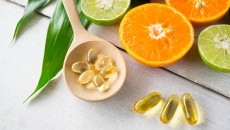Creatine monohydrate boosts muscle power in young soccer players

Writing in the journal Nutrients, Chilean researchers investigated the effect of a low-dose creatine supplement on muscle power after fatigue induced by Repeated Sprint Training (RSA), followed by half back squats (HBS). They noted that though while the use of creatine monohydrate (Cr) is widely documented by professional soccer players, more research was needed to understand the effect of low doses on physical performance in young players.
“At the end of the study, it was found that, after the induction of acute intra-session fatigue, a low dose of Cr administered orally increases muscle power in young soccer players,” the researchers reported.
Improving muscle strength and power
In both professional and youth soccer, developing muscular strength is essential for optimal performance. The fatigue players feel in training or during a match corresponds to any decrease in muscular performance.
Creatine monohydrate has emerged as one of the substances most valued by athletes of all levels, primarily for its effectiveness in increasing muscle strength and power as well as its ability to improve performance in high-intensity activities (anaerobic metabolism).
The researchers cited a previous study on anaerobic metabolism in professional and youth soccer players, reporting an improvement in muscle power with a low dose of Cr in the short term, however the study did not induce fatigue before evaluation.
Meanwhile, squats are one of the most widely-used exercises for developing strength in professional and semi-professional soccer players.
“The current literature needs to clarify the impact of a low dose of Cr, following the induction of acute fatigue during the session, on muscle power in half back squat (HBS), generating an essential gap in our knowledge,” the researchers wrote.
Study details
Twenty-eight soccer players (mean age = 17.1 ± 0.9 years) from the Everton Club of Viña del Ma in Chile volunteered to participate in the study. Researchers divided them into an experimental group (EG) and a control group (CG).
Over the 14 days of supplementation, both groups maintained regular training. The EG received 0.3 grams of Cr powder per kilogram of body mass. The CG consumed 0.3 grams of maltodextrin per kilogram of body mass.
Before each intervention, players completed a warm-up. Then, to induce fatigue similar to that experienced during a soccer match, they were asked to perform a repeated sprint ability (RSA) test followed by four HBS repetitions with a load equivalent to 65% of 1RM (1RM refers to the most weight they could lift in one rep). The researchers used the HBS results to observe possible effects of Cr.
Findings indicated that a low dose of Cr administered orally for 14 days after intra-session acute fatigue induction through 21 repetitions of RSA generates increased physical performance in young soccer players. It also showed significant increases in both execution velocity and power generated in the HBS.
The researchers suggested that when putting this information into practice, young soccer players should be adequately supervised, consume a balanced diet, understand the proper use of creatine and not exceed the recommended dose.
As limitation of the study, they noted the lack of internal intensity markers such as heart rate or post-exertion lactate as well as muscle damage markers—needed to confirm participants reached maximum exercise intensity. In addition, the study did not calculate Cr intake in the subjects’ daily diet and noted that a calculation of the total daily caloric expenditure of the participants should have been performed.
Source: Nutrients
doi: 10.3390/nu16091324
“Effects of a Low Dose of Orally Administered Creatine Monohydrate on Post-Fatigue Muscle Power in Young Soccer Players”
Authors: Álvaro Huerta Ojeda et al.














